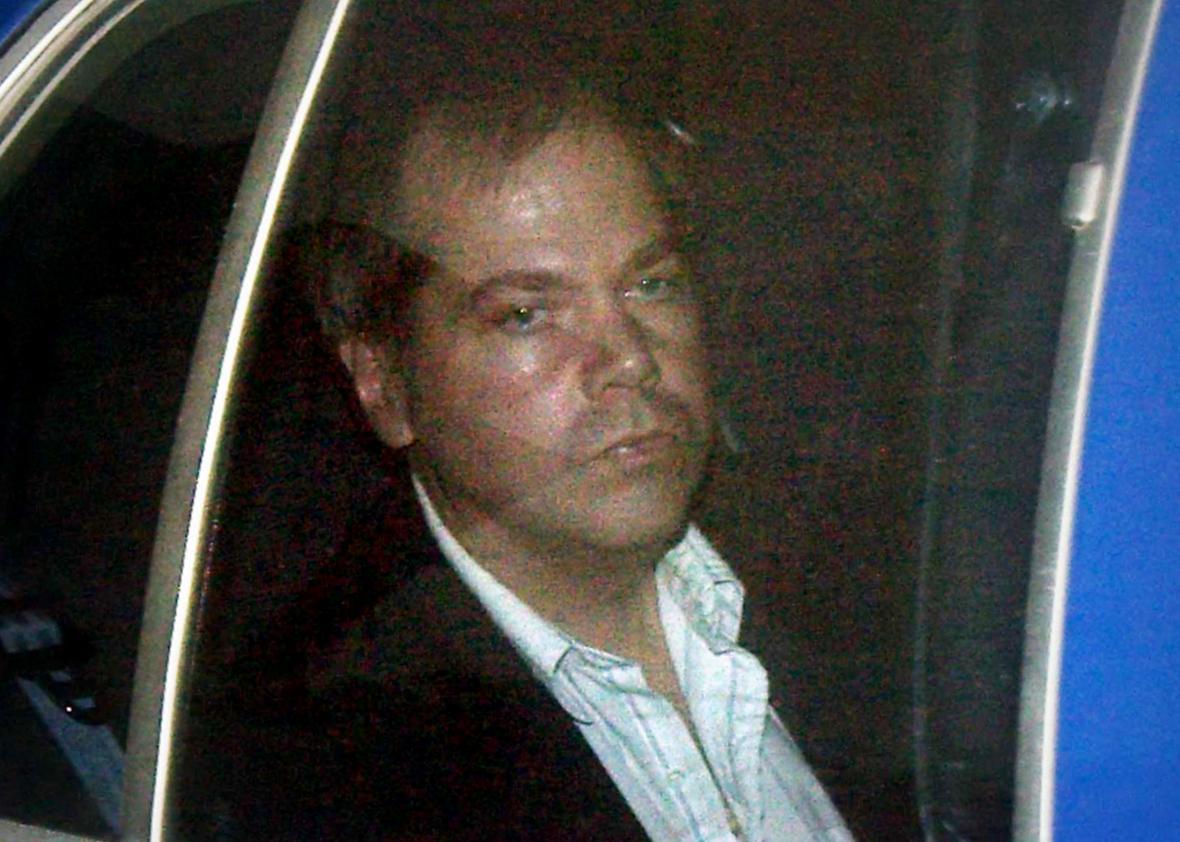John Hinckley Jr., the man who shot then-President Ronald Reagan in 1981, was freed from a mental hospital in Washington, D.C. on Saturday and arrived at his elderly mother’s home in Williamsburg, Virginia. He will be living with her now that a federal judge has ruled he is no longer a threat to himself or the public. Hinckley had already been visiting his mother and staying with her for long periods of time in preparation for the transition, reports the Associated Press.
Hinckley was found not guilty by reason of insanity in the shooting of the president and three others outside the Washington Hilton in March 1981 in what he described as an effort to impress actress Jodie Foster. The then 25-year-old, wounded Reagan, White House press secretary James Brady, Secret Service agent Tim McCarthy and D.C. police officer Thomas Delahanty. All four survived the attack although Brady, who was shot in the head, was left paralyzed.
“The very carefully considered decision by the court to release Mr. Hinckley based on the copious evidence by medical professionals and government expert witnesses should give great comfort to a concerned citizenry that the mental health system and the judicial system worked and worked well,” Hinckley’s lawyer Barry William Levine said in a statement.
Former federal prosecutor Joseph DiGenova, who prosecuted Hinckley, said he disagreed with the decision to release him. “I don’t think that anybody who tries to nullify a national election with a bullet should ever been walking free, no matter what their mental state,” he said. The Ronald Reagan Presidential Foundation and Institute had already expressed its disagreement with the decision saying that “contrary to the judge’s decision, we believe John Hinckley is still a threat to others and we strongly oppose his release.”
Hinckley will face lots of restrictions now that he has been released. NPR details some of the conditions of his release:
- He must notify a member of his treatment team before visiting any private homes.
- He is not allowed contact with the media.
- He “may not publicly display, physically or on the internet, any memorabilia, writings, paintings, photographs, art work, or music created by him, even anonymously,” without the approval of his treatment team.
- He is not allowed to contact his victims, their family members, or Jodie Foster — who he was obsessed with. He may not “knowingly travel” to areas where “the current or former Presidents, Vice Presidents, members of Congress, senior members of the Executive Branch, or any U.S. Secret Service protectee are or will be present imminently.
- He is not allowed to consume alcohol or illegal drugs.
- He “may only reside in the community with his mother at her home in Williamsburg, Virginia for at least the first full year of convalescent leave. After a year on convalescent leave, following the comprehensive risk assessment conducted by the Hospital, Mr. Hinckley may reside in a separate residence, either alone or with roommates, or in a group home within a 30-mile radius of Williamsburg,” if all the members of his treatment team agree.
- He can only travel within a 30-mile radius of his mother’s home unaccompanied unless it is to an appointment for treatment in D.C.
- He must “carry a GPS-enabled cell phone whenever he is away from his mother’s residence.”
- He must volunteer or work at least three days every week.
- He must meet with a doctor for psychiatric treatment at least twice per month, which can be reduce to once per month after 6 months.
- He must meet with a therapist for individual sessions at least three times per month and group sessions every week. The individual sessions can be reduced to twice a month after six months.
- He must participate in music therapy sessions at least once per month.
